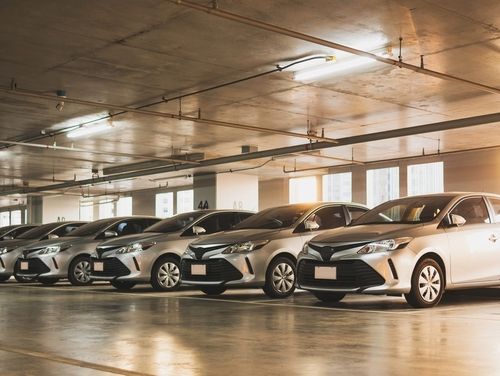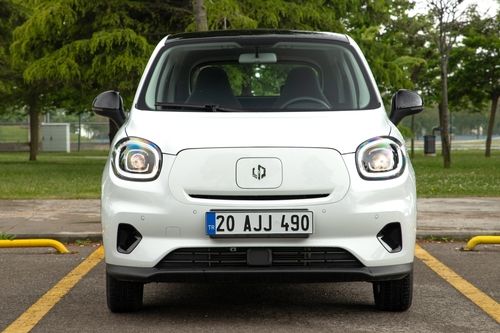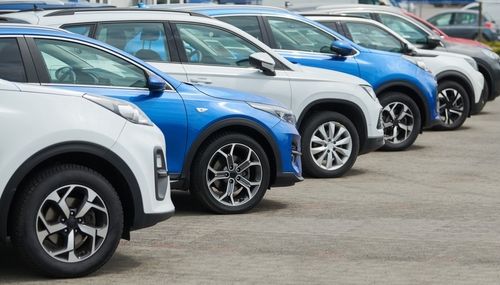Is Motor Insurance Mandatory for All Vehicles?
Written by Upstox Desk
Published on July 21, 2025 | 5 min read

Rashi lives in Noida and commutes to work on her scooter, which her dad had gifted her during her college years. In the past few years, the scooter has often broken down and become a fuel guzzler. It also lacks the latest systems, such as a mobile charger, Android connectivity, LED lights, security systems, and ABS.
Finally, she decided to upgrade and bought a new electric scooter. She paid around ₹6000 for comprehensive insurance for a year, and received government subsidies on the total price. She was extremely happy with the performance and would often flaunt it to her friends, highlighting both the performance and affordability. After almost 1.5 years of usage, she explained to her cousin the cost-effectiveness of having an electric scooter. She explained that she doesn't need insurance because she drives an environmentally friendly vehicle.
Her cousin stopped her midway and told her she had made a massive mistake by not renewing her EV insurance after one year.
People often have misconceptions about the mandatory nature of motor vehicle insurance in India. Many EV owners feel that the guidelines of the Motor Vehicles Act, 1988, do not apply to them as they do not have a ‘motor’ in their vehicles. The Upstox forum is often filled with questions regarding the requirements for carrying a driving license or vehicle insurance, posted by EV owners.
The Motor Vehicles Act, 1988, mandates insurance coverage for all vehicles plying on public roads. Yet, many vehicle owners remain unaware of what’s truly compulsory and what isn't. Let us understand why insurance is mandatory for all vehicles, which types are legally required, and what are the penalties for ignoring this regulation.
The Legal Mandate on Vehicle Insurance
It is quite clear: the Motor Vehicles Act stipulates that no vehicle in India can operate without having a valid and legal insurance. Having at least third-party insurance is mandatory for all vehicles, including cars and two-wheelers, regardless of whether they are used for private or commercial purposes.
This requirement encompasses all vehicle types, including electric vehicles (EVs). The Delhi High Court has ruled that electric vehicles (EVs) are subject to the same insurance obligations as conventional vehicles, ensuring uniform compliance across the board.
Reason for the Mandatory Nature
India has one of the highest population densities in the world. With the growing disposable income, increasing road network, and urbanisation, it is imperative that the total number of vehicles sold each year from now on shall only increase.
Protection for Third Parties
Ensures victims of accidents receive compensation for injuries, death, or property damage caused by another driver. This is the reason why third-party insurance is mandatory for all.
Legal Accountability
In the absence of such regulation, there would not be any responsible driving.
Reduces Burden on Courts
Simplifies compensation claims, avoiding long legal battles for accident victims.
Social Security Objective
Functions as a safety net, especially for those from economically weaker backgrounds.
High Road Accident Rates
India has one of the highest road accident rates in the world; therefore, this is a major proactive measure to reduce this number.
Applicable to All Vehicle Types
Including EVs, which must also carry at least third-party coverage under Indian law. However, as the technology of electric vehicles (EVs) continues to evolve, it is essential to have comprehensive insurance for these vehicles.
Consequences of Driving Without Vehicle Insurance
| Consequence | Details |
|---|---|
| Heavy Fines | ₹2,000 for the first offence, ₹4,000 for subsequent offences |
| Vehicle Seizure | Traffic authorities can impound uninsured vehicles on the spot |
| Jail Time | Up to 3 months imprisonment for driving without valid insurance |
| No Financial Backup | All repair, medical, and third-party costs must be paid out of pocket |
| Legal Liability | Personal lawsuits can be filed for damages or injury caused to others |
| Loss of No Claim Bonus (NCB) | Break in policy renewal = loss of accumulated premium discounts |
Common Myths Around Mandatory Insurance
Here are some of the most common myths around mandatory insurance, busted:
-
I do not drive a lot, so I do not need it: Irrespective of how many kilometres you clock, having at least third-party vehicle insurance is mandatory.
-
Two-wheelers and EVs are exempted from insurance: No vehicle is required to be insured, irrespective of its size and usage.
-
I am a safe driver, so I do not need an insurance policy: It is not about you, but also about how others drive. You can accidentally damage third-party property. Nobody is a perfect driver.
Summing up
There is absolutely no excuse when it comes to having motor vehicle insurance in India. It is important to note that third-party motor insurance is mandatory for all vehicles on Indian roads, regardless of type or usage. There are no exceptions to this, and you are breaking a critical law if you drive without insurance, which also puts your vehicle and third parties at tremendous risk.
FAQs
Is third-party insurance mandatory for all vehicles in India?
Yes, under the Motor Vehicles Act, third-party insurance is mandatory for all vehicles.
Does this apply to electric vehicles, too?
Yes, electric vehicles are legally required to have third-party insurance, just like petrol and diesel vehicles.
What happens if I drive without valid motor insurance?
You may face a fine up to ₹4,000, imprisonment up to 3 months, and vehicle seizure.
Is comprehensive insurance compulsory?
No, only third-party insurance is mandatory. Comprehensive coverage is optional but recommended.
Is insurance required if my vehicle is not in use?
If it's off-road and unused, insurance is not legally required, but it must be in place before use.
About Author
Upstox Desk
Upstox Desk
Team of expert writers dedicated to providing insightful and comprehensive coverage on stock markets, economic trends, commodities, business developments, and personal finance. With a passion for delivering valuable information, the team strives to keep readers informed about the latest trends and developments in the financial world.
Read more from UpstoxUpstox is a leading Indian financial services company that offers online trading and investment services in stocks, commodities, currencies, mutual funds, and more. Founded in 2009 and headquartered in Mumbai, Upstox is backed by prominent investors including Ratan Tata, Tiger Global, and Kalaari Capital. It operates under RKSV Securities and is registered with SEBI, NSE, BSE, and other regulatory bodies, ensuring secure and compliant trading experiences.

























